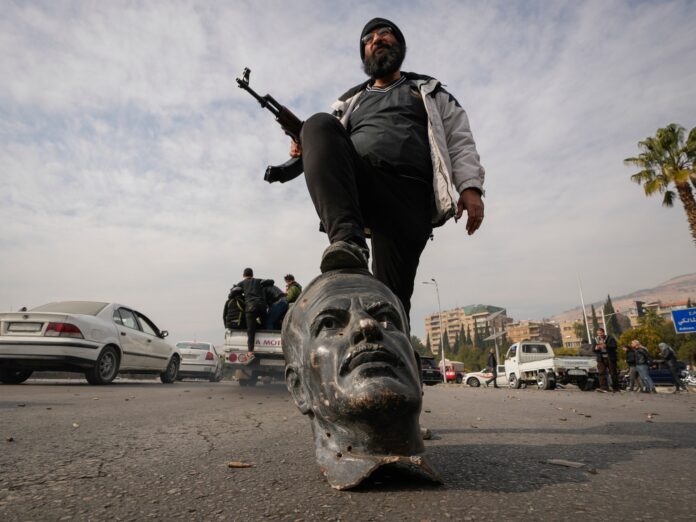On December 8, Syrian opposition forces entered Damascus and declared the end of Bashar al-Assad’s regime after a rapid offensive lasting less than two weeks. The Syrian president and his family reportedly fled in an unknown direction just before the rebels took control of the capital.
This uprising against the al-Assad family rule should be considered a significant political milestone in the modern Arab region since the creation of Israel in 1948. It marks a departure from the legacy of military-ruled Arab autocrats that have dominated Arab societies since the 1950s.
While many celebrate the overthrow of al-Assad, others are concerned about the future given the involvement of various local and external powers in Syria. The Syrian people are seeking a better life, respect, and a voice in their governance. It is important to support their efforts to establish a new and stable order in their country.
The Syrian governance and civil war serve as a poignant reminder of the destructive impact of heavy-handed Arab state power that has plagued the region for decades. The al-Assad regime exemplified the military-backed autocracy that has oppressed the Syrian people and undermined the country’s development.
The Syrian experience sheds light on the common characteristics of Arab autocracy, including lack of genuine pluralism, military rule, corruption among the elite, and disconnect between citizens and the state. These traits have hindered progress and prosperity in Arab societies.
The rise of military-run Arab governance, beginning with the Egyptian revolution in 1952, has led to a decline in opportunities for education, healthcare, and economic well-being for most Arabs. Inequality and poverty have continued to rise, despite the wealth in some oil-producing states.
Repression by Arab governments has silenced citizens and fuelled anger and desperation. Many have turned to tribal, religious, or ideological groups for protection. The Syrian conflict demonstrates the consequences of suppressing peaceful dissent and undermining national unity.
The events in Syria should serve as a warning to Arab autocrats about the unsustainable nature of their rule. It is crucial to acknowledge the people’s desire for freedom and dignity and work towards systems that prioritize their well-being.
The views expressed in this article are the author’s own and do not necessarily reflect Al Jazeera’s editorial stance.




